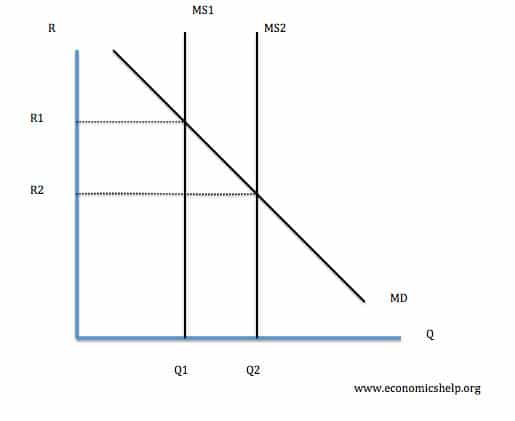
Readers Question: Does expansionary monetary policy, where money supply is increased, also cause a depreciation in the currency? – Since there is a surplus of the currency in the foreign exchange market.
Expansionary monetary policy means policies to increase demand in the economy. Expansionary monetary policy typically will involve:
In many circumstances, an increase in the money supply could lead to a depreciation in the exchange rate. This is for two main reasons:
1. Inflation. Everything else being equal, an increase in the money supply is likely to cause inflation. This is because with more currency chasing the same quantity of goods, firms will respond by putting up prices. (See why an increase in the money supply causes inflation)
Alternatively, if expansionary monetary policy involves cutting interest rates – lower interest rates will tend to increase aggregate demand leading to possible inflationary pressure. (Effect of lower interest rates)
This domestic inflation will make your goods relatively less competitive and export demand will fall. Therefore, there will be less demand for the currency and its value will tend to fall on the exchange rate markets.
2. Lower interest rates. Also, if you increased the money supply, (through a Central Bank creating more money), then this reduces interest rates.

Higher money supply puts downward pressure on interest rates.
Lower interest rates will also tend to reduce the value of the currency. If UK interest rates fall relative to elsewhere, it becomes less attractive to save money in UK banks. We will see an outflow of ‘hot money’ as investors move to countries with higher interest rates. This will put downward pressure on the currency as people sell Pounds to buy other currency.
The Pound fell rapidly in 2007 to early 2009 during the start of the credit crunch and great recession. But the Pound recovered in the period 2009-2012 – despite expansionary monetary policy and quantitative easing in this period.
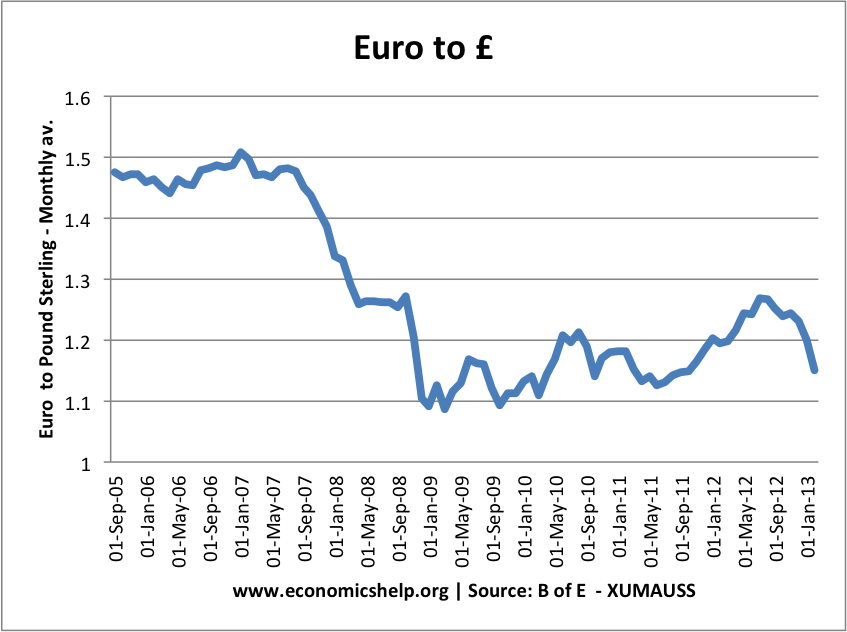
In the great recession, we saw countries pursue expansionary monetary policy (Quantitative easing, zero interest rates) and at the same time, there wasn’t a depreciation in the currency). How could this occur?
1. Expansionary monetary policy may not actually increase the money supply
In the UK, quantitative easing created £375bn of new money to buy assets. However, this didn’t translate into higher money supply (M4). In the UK, M4 growth remained weak.
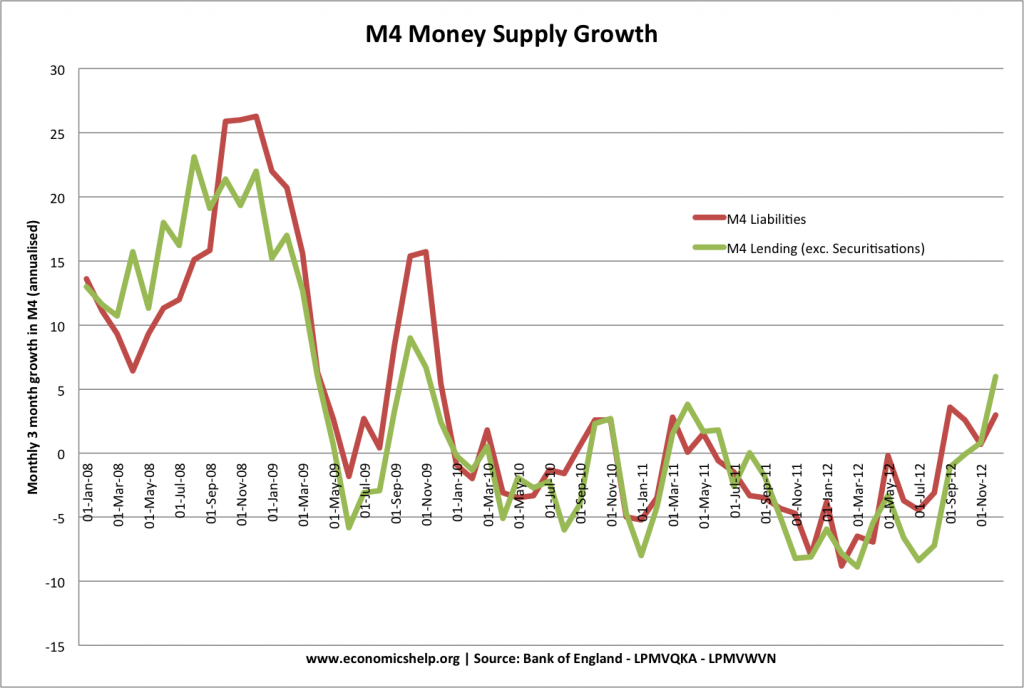
There were a few reasons for this. But, one is that people preferred to hold the extra money. Banks didn’t lend the extra reserves they gained from selling assets to the Bank of England. Therefore, the expansionary monetary policy didn’t lead to an excess supply of currency and depreciation in the Pound.
2. Liquidity Trap
An increase in the money supply doesn’t always cause lower interest rates. In a liquidity trap, monetary policy can’t reduce interest rates because they are already at the ‘Lower zero bound rate’
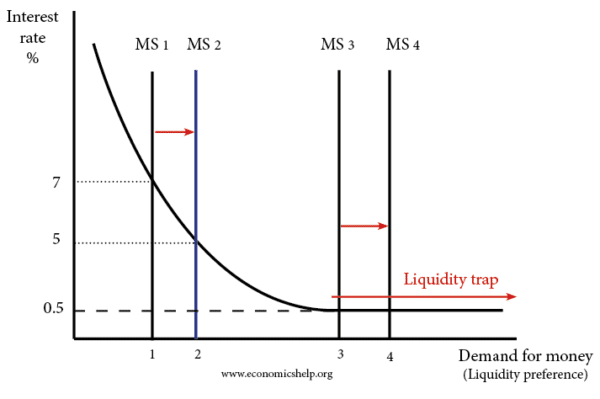
If interest rates stay the same, we don’t get an outflow of hot money.
3. Expansionary monetary policy may not cause any inflation
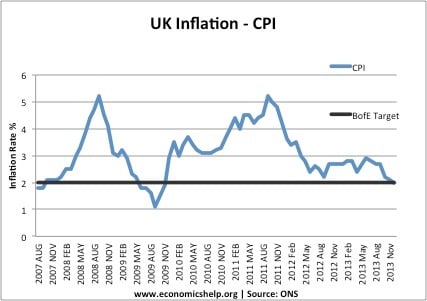
The great recession is fairly unique in that the UK pursued expansionary monetary policy (zero interest rates, quantitative easing and even forward guidance to try an increase inflation expectations). But, UK inflation fell from mid-2011, even though monetary policy remained expansionary. Therefore, there has been less downward pressure on the currency than we might expect.
4. Other factors affecting currencies
e.g. Relative strength of currencies. In normal economic circumstances, we would expect zero UK interest rates to lead to a fall in the value of Sterling. But, in the great recession, all currencies have been relatively weak. For example, investors have been put off the Euro due to the Euro debt crisis and austerity measures.
Related pages